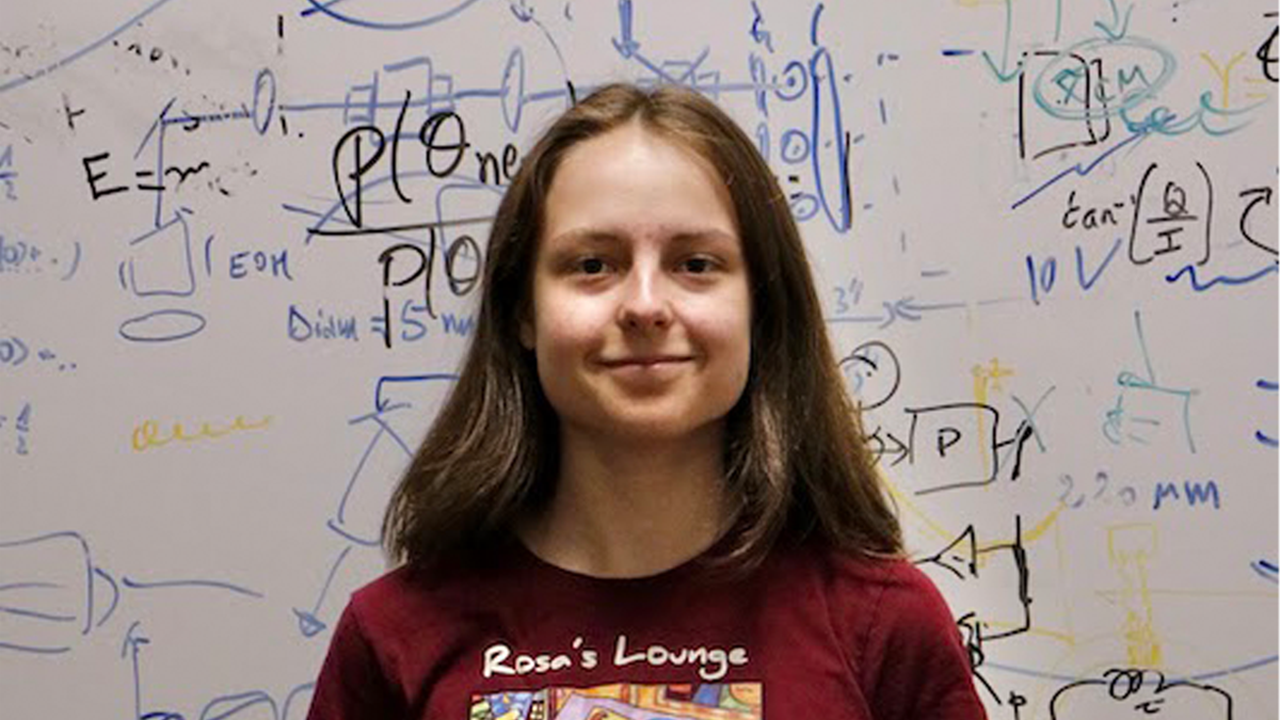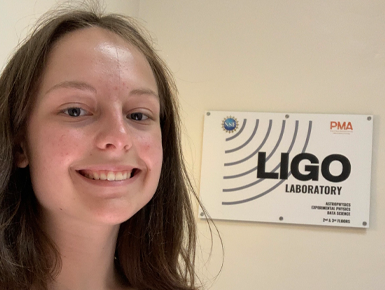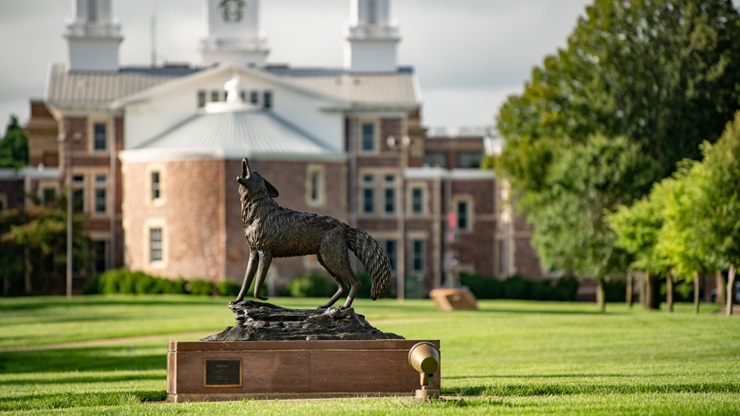USD Physics Student Lands Internship at One of Nation's Top Research Institutions

“I remember hearing about LIGO discovery of gravitational waves and their 2017 Nobel Prize in Physics on the news, and now I am honored to work with a group that made one of the biggest scientific breakthroughs of the 21st century,” Lukina said. “It is breathtaking for me to have a chance to contribute to such cutting-edge science that brings new discoveries about our universe.”

As one of 26 students selected from around the world to do research at the LIGO laboratory at Caltech, Lukina is analyzing gravitational wave data and investigating different ways to combine results of data analysis pipelines to improve physicists’ ability to recognize black hole mergers in noisy datasets.
“I enjoy being a part of a diverse and talented community of students from all over the world who share my passion in gravitational wave science,” said Lukina, who has been interested in the science of gravitational waves since high school. “I feel accepted and valued and cannot believe that I am now a part of such a powerful research institute that has contributed so much to science and technology.”
A student in the Department of Physics, Lukina has been involved in a variety of organizations at USD, including Physics Club, International Club, European Club and Math Club, and has immersed herself in research opportunities, like the Super Cryogenic Dark Matter Search (SuperCDMS). Lukina said these experiences, as well as mentorship from her research advisor, Joel Sander, Ph.D., associate professor of physics, have well prepared her for this internship experience.
“My research experience at the USD physics department gave me important skills and knowledge to be qualified for this internship,” said Lukina. “Coming to Caltech, I already knew how to code in Python, use remote computers and work as a part of a collaboration, so I quickly adapted to the new setting and now work with students from some of the best-rated schools in the U.S.”
When she returns to campus in the fall, Lukina plans to begin her graduate school application process and take important steps toward becoming a professional physicist. Her internship through the LIGO SURF program is putting her one step ahead.
“This program is giving me a chance to try gravitational wave physics and is allowing me to gain valuable research experience in a well-known lab that will give me an advantage in graduate school and beyond,” said Lukina. “In addition, I plan to take part in Caltech seminars that prepare students for the graduate school application process, which will also be very helpful.
“Overall, I am hoping to learn all the best research practices here at Caltech and use them in my own future work as a scientist,” Lukina added. “It has been less than a week on the Caltech campus for me, but I already feel that I have reached a scale of scientific research that I was only dreaming about before.”

